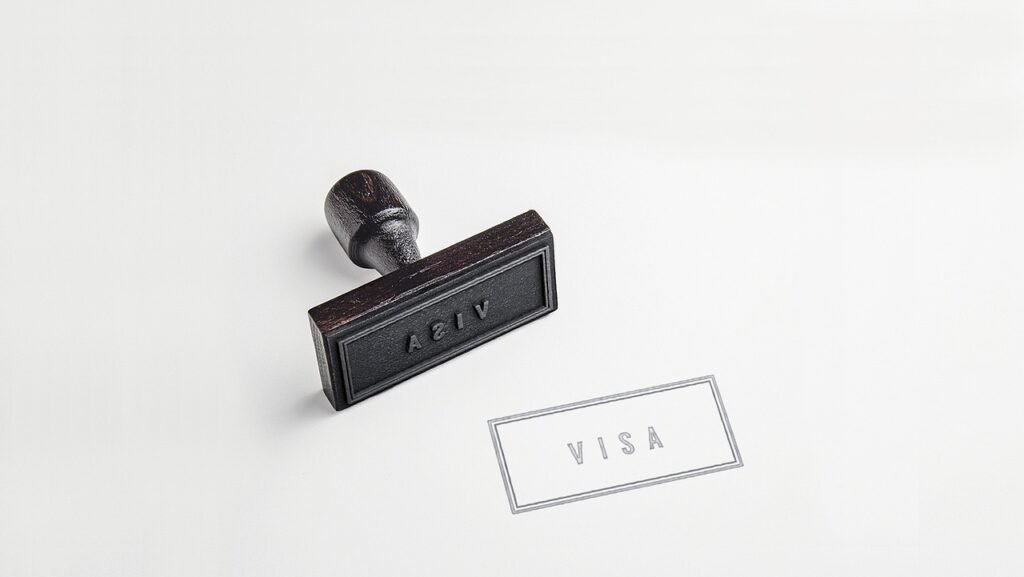Germany, known for its rich history, thriving economy, and cultural diversity, is a top destination for travelers, students, workers, and immigrants worldwide. Whether you’re planning to visit for a short stay, pursue higher education, or even relocate for work, understanding the various visa options available is crucial. This comprehensive guide will walk you through the different types of visas for Germany, helping you determine which one suits your needs.
1. Understanding the German Visa System
Germany, as part of the European Union (EU) and the Schengen Area, follows a structured visa system that caters to different purposes of stay. The type of visa you need will depend on the length of your stay, your nationality, and the purpose of your visit. The German visa system is generally divided into three main categories:
– Schengen Visa (Short-Stay Visa): For stays up to 90 days within a 180-day period.
– National Visa (Long-Stay Visa): For stays exceeding 90 days.
– Residence Permits: For long-term residency and specific purposes like work, study, or family reunification.
2. Schengen Visa (Short-Stay Visa)
The Schengen Visa allows you to stay in Germany and other Schengen Area countries for up to 90 days within a 180-day period. This visa is ideal for tourists, business travelers, and those visiting family or friends. The Schengen Visa is further categorized based on the purpose of the visit:
a. Tourist Visa
If you plan to explore Germany’s beautiful landscapes, historic landmarks, and vibrant cities, the Tourist Visa (Type C) is what you need. This visa allows you to visit Germany for leisure purposes for up to 90 days.
b. Business Visa
The Business Visa is for individuals visiting Germany for professional reasons, such as attending meetings, conferences, or business negotiations. It also falls under the Schengen Visa (Type C) and allows a stay of up to 90 days.
c. Visitor Visa
The Visitor Visa is for those planning to visit family or friends in Germany. Like the other Schengen visas, this visa permits a stay of up to 90 days within a 180-day period.
d. Cultural, Sports, and Film Crews Visa
This visa is for individuals participating in cultural events, sports activities, or film production in Germany. The visa also allows a stay of up to 90 days.
e. Airport Transit Visa
If you’re passing through a German airport on your way to another country, you may need an Airport Transit Visa (Type A). However, this visa doesn’t allow you to leave the airport’s international transit area.
3. National Visa (Long-Stay Visa)
For stays exceeding 90 days, you’ll need a National Visa (Type D). This visa is typically for individuals planning to work, study, or settle in Germany for an extended period. The National Visa is usually granted for the specific purpose of your stay and allows entry into Germany to apply for a residence permit. Below are the most common types of National Visas:
a. Student Visa
Germany is one of the most popular destinations for international students, thanks to its world-class universities and research institutions. The Student Visa is for those who have been accepted into a German university or a preparatory course. There are different categories within the Student Visa:
– Student Applicant Visa: If you haven’t yet received your admission letter, you can apply for a Student Applicant Visa. This visa allows you to enter Germany and complete the admission process.
– Student Visa: Once you have your admission letter, you can apply for a Student Visa, which allows you to stay in Germany for the duration of your studies.
b. Work Visa
Germany’s strong economy offers numerous opportunities for skilled workers from around the world. The Work Visa is for individuals who have a job offer from a German employer. Several subcategories exist under the Work Visa, depending on your profession and qualifications:
– General Employment Visa: For individuals with a job offer in any profession.
– Skilled Workers Visa (Blue Card): For highly skilled professionals with an academic degree and a job offer that meets a specific salary threshold.
– Freelance Visa: For self-employed individuals and freelancers, particularly in fields like art, culture, and media.
– Job Seeker Visa: For those who wish to enter Germany to search for a job. This visa is valid for six months, during which you can look for employment.
c. Family Reunion Visa
The Family Reunion Visa allows family members of German citizens or legal residents to join them in Germany. This visa is typically for spouses, children, and sometimes parents of the resident or citizen.
d. Language Course Visa
If you’re planning to learn German, you can apply for a Language Course Visa. This visa allows you to stay in Germany for the duration of your language course, which can range from a few months to a year.
e. Researcher Visa
Germany is a hub for research and innovation, attracting scholars and researchers from around the globe. The Researcher Visa is for individuals who have been invited by a German research institution to conduct research or academic work.
f. Au Pair Visa
The Au Pair Visa is for young people who wish to live with a German family and help with childcare in exchange for room, board, and a small allowance. This visa is an excellent opportunity to immerse yourself in German culture while improving your language skills.
g. Internship/Training Visa
For those seeking practical experience in Germany, the Internship/Training Visa allows you to stay and work as an intern or trainee in a German company. The duration and eligibility depend on the nature of the internship or training program.
4. Residence Permits
Once you arrive in Germany with a National Visa, you must apply for a Residence Permit if you plan to stay long-term. Residence permits are issued for specific purposes and are generally tied to the purpose of your stay. Here’s an overview of the most common types of residence permits:
a. Employment Residence Permit
This permit is for individuals who have a valid job offer and plan to work in Germany. The Employment Residence Permit is typically issued for the duration of your employment contract, and it can be extended as long as you continue working in Germany.
b. Blue Card
The EU Blue Card is a special residence permit for highly qualified workers from non-EU countries. To be eligible, you must have a recognized university degree and a job offer that meets a minimum salary requirement. The Blue Card allows you to live and work in Germany and provides a pathway to permanent residency.
c. Student Residence Permit
If you have entered Germany with a Student Visa, you must apply for a Student Residence Permit. This permit allows you to stay in Germany for the duration of your studies, with the possibility of extending it if needed.
d. Family Reunion Residence Permit
This permit allows family members of German citizens or residents to join them in Germany. The Family Reunion Residence Permit is issued based on the applicant’s relationship with the resident or citizen.
e. Permanent Residence Permit (Settlement Permit)
After living in Germany for a certain period (typically five years) with a temporary residence permit, you may be eligible for a Permanent Residence Permit or Settlement Permit. This permit grants you the right to live and work in Germany indefinitely.
f. EU Long-Term Residence Permit
Similar to the Settlement Permit, the EU Long-Term Residence Permit allows you to reside in Germany and other EU member states indefinitely. To be eligible, you must have lived in Germany for five years with a temporary residence permit and meet other requirements, such as language proficiency and financial stability.
5. Visa for Freelancers and Self-Employed Individuals
Germany is an attractive destination for freelancers and self-employed professionals, particularly in the creative and tech industries. If you plan to work independently in Germany, you can apply for a Freelance or Self-Employment Visa. The application process involves proving that your work will have economic or cultural relevance and that you have the necessary qualifications and financial means.
a. Freelance Visa
The Freelance Visa is for individuals working independently in fields like art, culture, journalism, or technology. To obtain this visa, you must demonstrate that your freelance work is in demand in Germany and that you have clients or contracts lined up.
b. Self-Employment Visa
The Self-Employment Visa is for entrepreneurs who wish to start or manage a business in Germany. To qualify, you need to present a solid business plan, prove that your business will benefit the German economy, and show that you have sufficient funds to support your venture.

6. Visa for Researchers and Academics
Germany is a global leader in research and higher education, making it a sought-after destination for scholars, scientists, and academics. If you have been invited by a German research institution to conduct research or academic work, you can apply for a Researcher Visa. This visa allows you to stay in Germany for the duration of your research project.
a. Researcher Visa
To obtain a Researcher Visa, you need an invitation or contract from a recognized research institution in Germany. The visa is typically granted for the length of your research project and can be extended if necessary.
b. Guest Scientist Visa
If you are a scientist invited to Germany for short-term research activities, you may apply for a Guest Scientist Visa. This visa is ideal for individuals participating in collaborative research or academic exchanges for a limited period.
7. Visa for Special Categories
Germany offers several visa options for individuals who fall into specific categories, such as artists, athletes, or volunteers. These visas cater to unique needs and allow for temporary or long-term stays in Germany.
Additional Tips
Start early: The visa application process can be time-consuming, so start planning well in advance.
Gather all required documents: Ensure you have all necessary documents before submitting your application.
Check the German embassy or consulate website: The official website of the German embassy or consulate in your country will provide the most accurate and up-to-date information.
Consider visa fees: Visa fees vary depending on the visa type and your nationality.
Language proficiency: For some visa categories, proof of German language skills might be required.
Disclaimer
This information is intended as a general guide and does not constitute legal advice. It is essential to consult the official German embassy or consulate website for the most accurate and up-to-date information regarding visa requirements and procedures.
By carefully considering your plans and following the guidelines provided, you can increase your chances of obtaining the correct visa for your stay in Germany.


